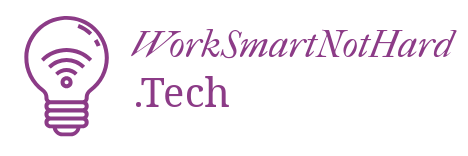Key Strategies for Smart Work in Tech Startups
Efficiency is paramount in the rapidly evolving landscape of tech startups, where the pressure to perform is relentless. To achieve sustainable growth without burning out, tech entrepreneurs must focus on smart work strategies rather than sheer hard work. One fundamental approach is the prioritization of high-impact tasks. By directing efforts towards activities that significantly drive growth, such as product development and customer acquisition, entrepreneurs can optimize their limited resources.
An essential component of working smart is leveraging automation through advanced SaaS tools. Innovative software solutions, from project management platforms like Asana and Trello to comprehensive CRM systems such as HubSpot and Salesforce, enable streamlined operations. These tools facilitate smooth planning, tracking, and execution of projects, as well as effective customer relationship management. Automating routine tasks not only saves time but also reduces the margin for error, allowing teams to focus on strategic initiatives.
Intelligent workflow management is another critical aspect. Implementing agile methodologies can revolutionize how tech startups operate. Agile principles, with their emphasis on iterative development, flexibility, and collaboration, help teams adapt quickly to market changes and deliver superior products. Techniques like Kanban and Scrum foster an environment of continuous improvement and fast feedback loops, ensuring that the workflow remains efficient and aligned with business goals.
Moreover, delegating non-essential tasks to team members or outsourcing them can significantly enhance productivity. Founders and core team members should invest their time in activities that require their expertise and decision-making capabilities. Delegation ensures that every team member is utilized effectively, preventing bottlenecks and fostering a culture of trust and accountability.
Effective team collaboration is crucial as well. Utilizing communication and collaboration tools like Slack or Microsoft Teams helps in maintaining transparent and efficient interactions within the team. Additionally, data-driven decision-making should be at the core of the business strategy. Analyzing key performance indicators (KPIs) and leveraging data analytics can uncover insights, optimize processes, and guide strategic decisions, ultimately enhancing operational efficiency.
By integrating these strategies, tech startups can create a robust framework for working smarter. Prioritizing high-impact tasks, adopting cutting-edge productivity tools, embracing agile methodologies, and relying on data-driven decisions pave the way for sustained success and growth in the competitive technology sector.
Balancing Work Efficiency with Health and Mental Well-being
In the fast-paced world of tech entrepreneurship, maintaining a balance between work efficiency and personal well-being is crucial. The intense demands of running a tech startup can often lead to stress, exhaustion, and burnout if not managed appropriately. Therefore, incorporating stress management techniques is essential for sustaining long-term productivity and health. One effective method is through mindful scheduling, where tasks are allocated in a way that avoids overwhelming pressure and allows for flexibility.
Regular breaks are vital in promoting productivity and health. Research consistently shows that short, frequent breaks during work hours can rejuvenate the mind, reduce stress, and enhance focus. It’s advisable to follow the Pomodoro Technique, which involves 25 minutes of focused work followed by a 5-minute break, as a way to optimize concentration and prevent fatigue.
Physical health also plays a significant role in work efficiency. Engaging in regular physical activity, even simple exercises like walking or stretching, can boost energy levels, improve mood, and stimulate brain function. Ensuring physical well-being through a balanced diet, adequate sleep, and regular medical check-ups is equally important and contributes to overall productivity.
The significance of mental health cannot be overstated in the realm of tech entrepreneurship. Incorporating mindfulness exercises such as meditation or deep-breathing exercises helps in managing anxiety and maintaining emotional balance. Such practices encourage relaxation and mental clarity, which are invaluable in making effective business decisions.
A supportive company culture is fundamental in fostering mental health and well-being among team members. A work environment that promotes open communication, mutual respect, and teamwork not only supports individual health but also enhances overall business performance. Encouraging flexible working hours, providing mental health resources, and recognizing employee achievements are ways to cultivate a positive company culture.
A balance between work efficiency and personal well-being is not merely a luxury but a necessity for tech entrepreneurs. By integrating regular breaks, physical activity, mindfulness exercises, and fostering a supportive work culture, tech startups can achieve sustainable productivity while ensuring the health and happiness of their team members.
